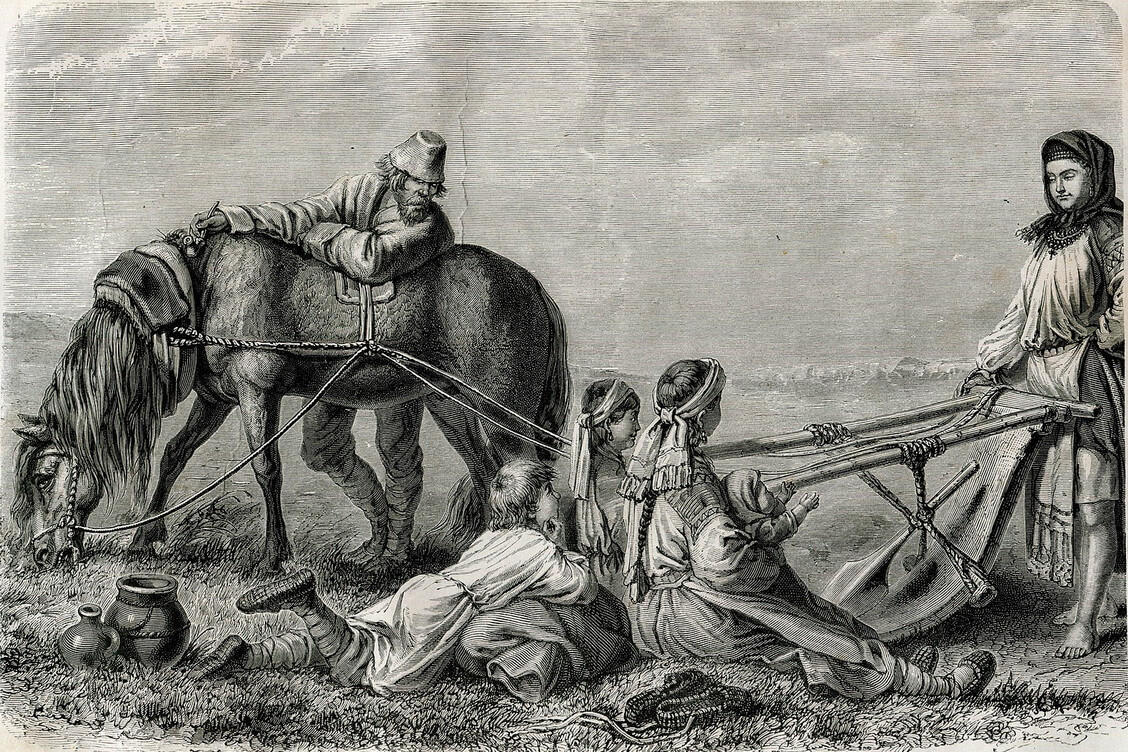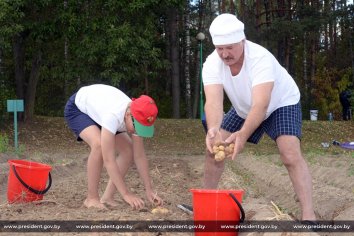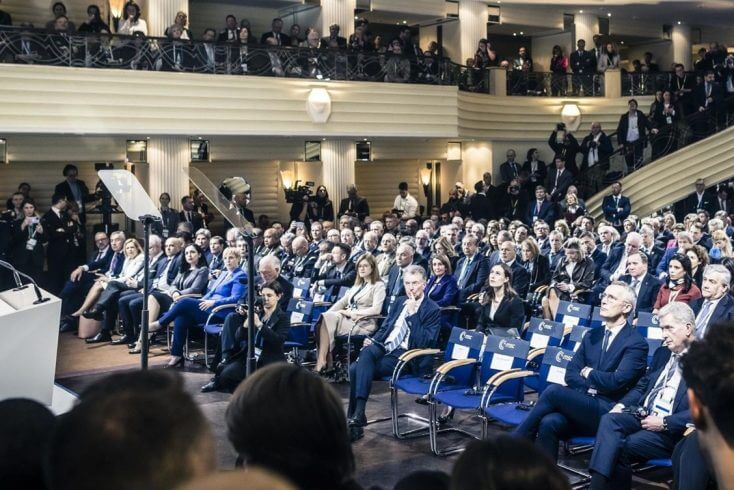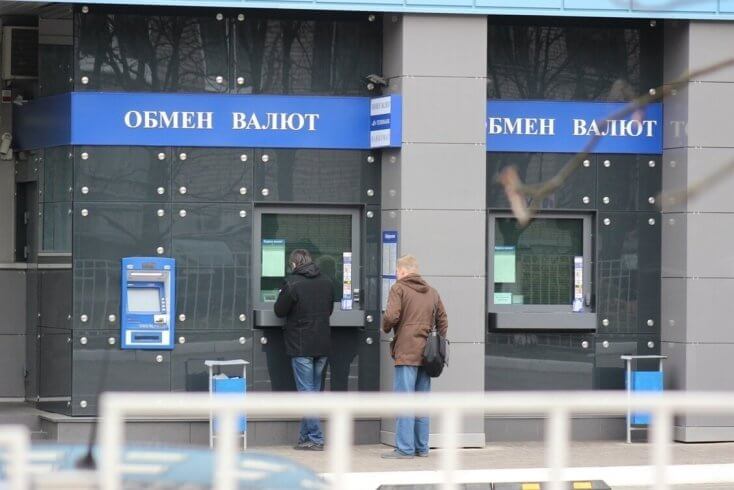Potatoes give the Belarusian ruler no rest. Objectively, the potato shortage has exposed deep flaws in Belarus’ command-style, centrally planned economy. But instead of addressing structural issues, the Belarusian ruler continues to look for scapegoats.

He accused traders of plotting against him and blamed his governors for negligence. He also lambasted Americans for “inventing” the free market and criticized his “fugitive” opponents for fueling the public outcry over the potato shortage.
Back to the basic plough
The Belarusian strongman has not limited himself to conspiracy theories. He has even blamed consumers for the scarcity of the country’s national staple.
“Those who lament . . . are people who have dachas. Why are you lamenting, why are you fighting? We have enough seeds. So you [should plant] two furrows for yourself to [harvest] two sacks of potatoes,” he suggested during a meeting with agricultural sector officials in Astrašycki Haradok, just outside Minsk, on June 17.
He went on to criticize the younger generation: “If you think that our youth that follows us will work the same way [as the older generation], you are under a delusion and you are fooling yourselves. They won’t. This youth is different. They thought that potatoes grow on the Internet, but it turned out [they grow not] on the Internet, but in the field.”
Earlier, the Belarusian ruler both acknowledged and denied the shortage, claiming that retailers had withheld supplies in a deliberate attempt to discredit him.
“And when he [presumably a security officer] went there and put handcuffs on their table, the potatoes reappeared [on the counter],” Łukašenka said on June 10.
So, presumably, there was no need to worry—or to labor at dachas on Sundays. Yet today, many people purchase dachas as a weekend retreat, not as a second job. Łukašenka, however, appears to see citizens as work mules.
Besides, planting potatoes in one’s backyard is not particularly productive. Large farms are far more efficient in this regard. Over his 30 years in power, Łukašenka—once a collective farm director—has funneled massive public funds into large state-run farms. Was it all wasted if he now urges a return to subsistence farming?
If tomorrow government price controls caused a shortage of clothing, would he demand that citizens sow flax at their dachas, then pull it by the roots, ripple it, ret it, break it, scutch it, hackle it, comb it, spin it and weave it?
Potatoes grow on the Internet
Łukašenka often complains that officials are “losing” young people—typically in the context of ideological control—yet he offers them backward lectures unlikely to inspire respect or enthusiasm.
The Belarusian ruler casts himself as a hardworking man with village roots and mentally remains in an era when survival depended on relentless manual labor.
For him, real work means hard physical toil. “They thought that potatoes grow on the Internet,” he said, seemingly unaware that the comment underscores his technological backwardness more than youth’s ignorance.
In reality, a single IT programmer can generate more revenue for the country than a thousand farmers.
The IT sector and Łukašenka have been at odds since 2020, when he ordered mass arrests of IT professionals for participating in protests against election fraud.
Following the 2022 exodus of tech workers and companies—prompted by Belarus’ role in Russia’s full-scale invasion of Ukraine—the IT and communications sector’s contribution to GDP plunged from 8.3 percent to 4.4 percent in just two years.
Hanna Rabava, appointed last month as head of the Minsk-based High-Tech Park, said on June 12 that programmers were welcome to return—provided they follow “our country’s rules and guidelines.”
Clearly, these “rules and guidelines” have little to do with coding. She was referring to political loyalty. It’s unlikely that many exiled programmers will be persuaded by her invitation—especially if it comes with the added expectation of growing their own potatoes on weekends.
Import substitution held together with duct tape and prayers
Łukašenka seeks to impose his subsistence logic not only on Belarus, but also on the broader Union State with Russia.
He repeatedly claims that Belarus and Russia remain unaffected by sanctions, citing the Soviet Union as a self-sufficiency success story.
However, as a historian by training, he appears to have forgotten that Josef Stalin’s industrialization relied heavily on Western technologies. The USSR built 1,500 factories and plants with foreign assistance.
For example, the Stalingrad Tractor Plant was designed and built in the late 1920s and early 1930s with help from Albert Kahn Associates, a Detroit-based architectural and engineering firm.
Much of the equipment, machinery and expertise came from the United States. American engineers helped train Soviet workers.
The plant, originally intended for agricultural tractors, later produced T-34 tanks during World War II.
The Gorky Automobile Plant based its production on Ford designs. Even Soviet nuclear advancements were built on stolen American blueprints.
Despite heavy investment in agriculture, the USSR increasingly relied on grain imports from Canada, the US and Australia. The “damned capitalists,” as they were called, were in fact feeding the communist state.
As the technological gap with the West widened, the Soviet system eventually collapsed.
Russia—let alone Belarus—has nowhere near the capacity the USSR once had. Nevertheless, Belarusian officials now propose absurd projects to develop domestic notebooks, smartphones, and even a national operating system to achieve “technological sovereignty.”
The modern economy functions on the principle of international division of labor. Countries produce what they do best and use the earnings to buy what others produce more efficiently.
Only the world’s most isolated regimes—North Korea and Iran, for example—try to sustain themselves with duct tape and wishful thinking.
Before 2020, Belarus profited from close trade ties with technologically advanced European markets. These ties have now been severed due to Minsk’s repression and its complicity in Russia’s war against Ukraine. While China has stepped in to an extent, it cannot fully fill the void.
The Łukašenka regime is now reaping the consequences of its reckless policies and flawed economic doctrine.
As the old joke goes: put a communist in charge of the Sahara, and it will soon face a sand shortage.
After 30 years of Łukašenka’s rule, Belarus—once proud of its potato production—finds itself short of potatoes, with its leader blaming the people for refusing to embrace a subsistence economy.




